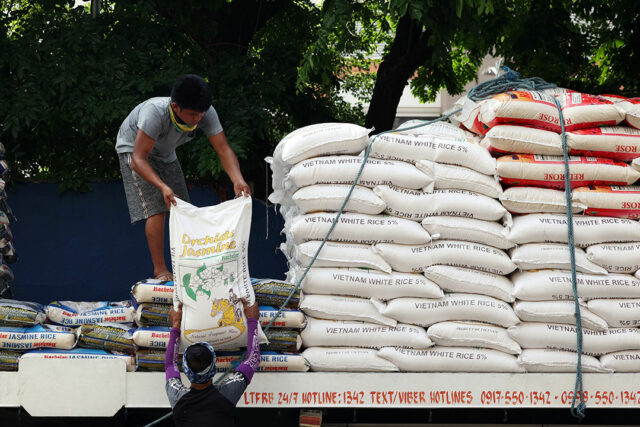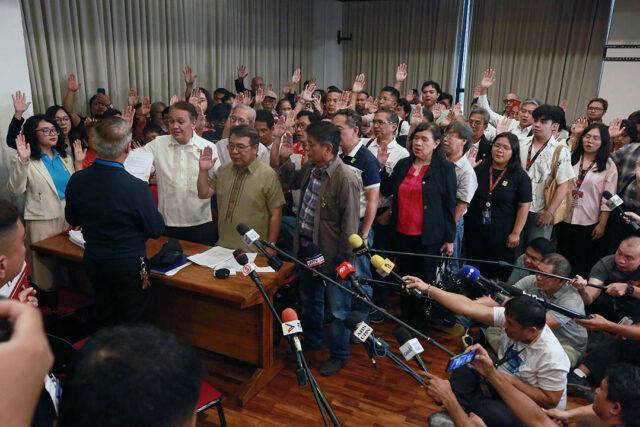By Chloe Mari A. Hufana, Reporter
THE Cordillera Administrative Region (CAR) and Region IV-B or Mimaropa approved daily minimum wage increases of P40 and P35, respectively, on Dec. 5.
CAR’s Regional Tripartite Wages and Productivity Board (RTWPB) issued Wage Order No. CAR-23, granting a P40 hike for workers across all sectors. This brings their entry-level pay to P470 from P430.
It also approved a P1,100 monthly increase for domestic workers in the region through Wage Order No. CAR-DW-06, bringing their minimum monthly compensation to P6,000 from P4,900.
It issued Wage Order No. CAR-23 on Nov. 13, but the National Wages and Productivity Commission (NWPC) only affirmed the hike on Thursday.
Both wage orders will be published on Dec. 8, 2024, and will take effect 15 days after publication, or on Dec. 24, 2024.
Meanwhile, Mimaropa (Mindoro, Marinduque, Romblon and Palawan) also granted a minimum wage increase of P35 for all sectors through Wage Order No. RB-MIMAROPA-12 last Nov. 27. The NWPC affirmed the order only on Dec. 5.
This brings the entry-level wages of firms with ten workers and above to P430 from P395. While those in establishments with less than ten workers will now receive P404 as the daily minimum pay from P369.
MIMAROPA’s RTWPB also issued Wage Order No. RB-MIMAROPA-DW-05, granting an additional P1,000 for the monthly entry-level pay of domestic workers. This brings their pay to P6,500 from P5,500.
Both wage orders for Region IV-B will be published on Dec. 7, 2024, and will take effect 15 days after publication or on Dec. 23, 2024.
“In affirming the wage orders, the NWPC found that both regions complied with the criteria for determining wage increases under Republic Act Nos. 6727 and 10361, which include the needs of workers and their families, capacity of employers/industry to pay, and the requirements of economic and social development in the region,” the Department of Labor and Employment (DoLE) said in a statement.
Jointly, the wage orders are expected to directly benefit 74,961 minimum wage earners.
Over 252,000 full-time wage and salary workers earning above the entry-level pay may also indirectly benefit due to wage distortion.
DoLE said 40,116 domestic workers will also benefit from the increases, with 10,002 of them on live-in arrangements.
“To further support wage growth, the RTWPBs were likewise ordered to implement productivity improvement programs and gainsharing schemes, especially in areas that may have low productivity,” it added.
It reminded that under the NWPC Omnibus Rules on Minimum Wage Determination, firms regularly employing not more than ten workers and firms affected by natural calamities and/or human-induced disasters may appeal to the RTWPB for an exemption of the wage hike.
Registered Barangay Micro Business Enterprises are not covered by the hike under Republic Act No. 9178.
Twelve regions have already issued wage orders (Regions NCR, CAR, I, II, III, IVA, MIMAROPA, VI, VII, VIII, IX and XII).
While six wage orders (Regions CAR, I, II, MIMAROPA, VI and VIII) have been issued for domestic workers.
Regions X (Northern Mindanao) and XIII (Caraga) are in the final stages of the minimum wage determination process after completing their November and December 2024 public hearings.
While Region XI (Davao Region) is scheduled to start in January 2025. Region V (Bicol Region) is still assessing its conditions and recovery after the devastating effects of typhoons on communities and businesses.
“The wage increases of P40 in CAR and P35 in MIMAROPA are welcome developments, as it will help ease some of the daily burdens faced by workers,” Federation of Free Workers (FFW) President Jose Sonny G. Matula told BusinessWorld in a Viber message.
He noted the hikes still fall short of the P150 wage recovery bill the group is advocating.
“The increases given by the two RTWPBs represent only 26.7% (P40/P150) and 23.3% (P35/P150) of the proposed legislative amount, highlighting the need for more substantial measures to address workers’ economic struggles,” he said.
“Even with this increase, the salary in CAR is 72.9% and in MIMAROPA only 66.7% compared to the P645 minimum wage in the National Capital Region. Discrimination against workers in the province has not yet been resolved,” he added in Filipino, noting gasoline and canned food are more expensive in provinces due to transport costs.
The labor group leader said electricity rates in Palawan are higher than the residential electricity rates in Manila.












